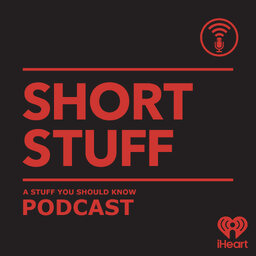Is brain size related to intelligence?
The idea that the larger the brain, the higher the intelligence is an old one, but it's pretty much utterly false. Modern investigation into how the brain works suggests there's a lot more to take into account when comparing brain biology to intellect.
Learn more about your ad-choices at https://www.iheartpodcastnetwork.com
 Stuff You Should Know
Stuff You Should Know


